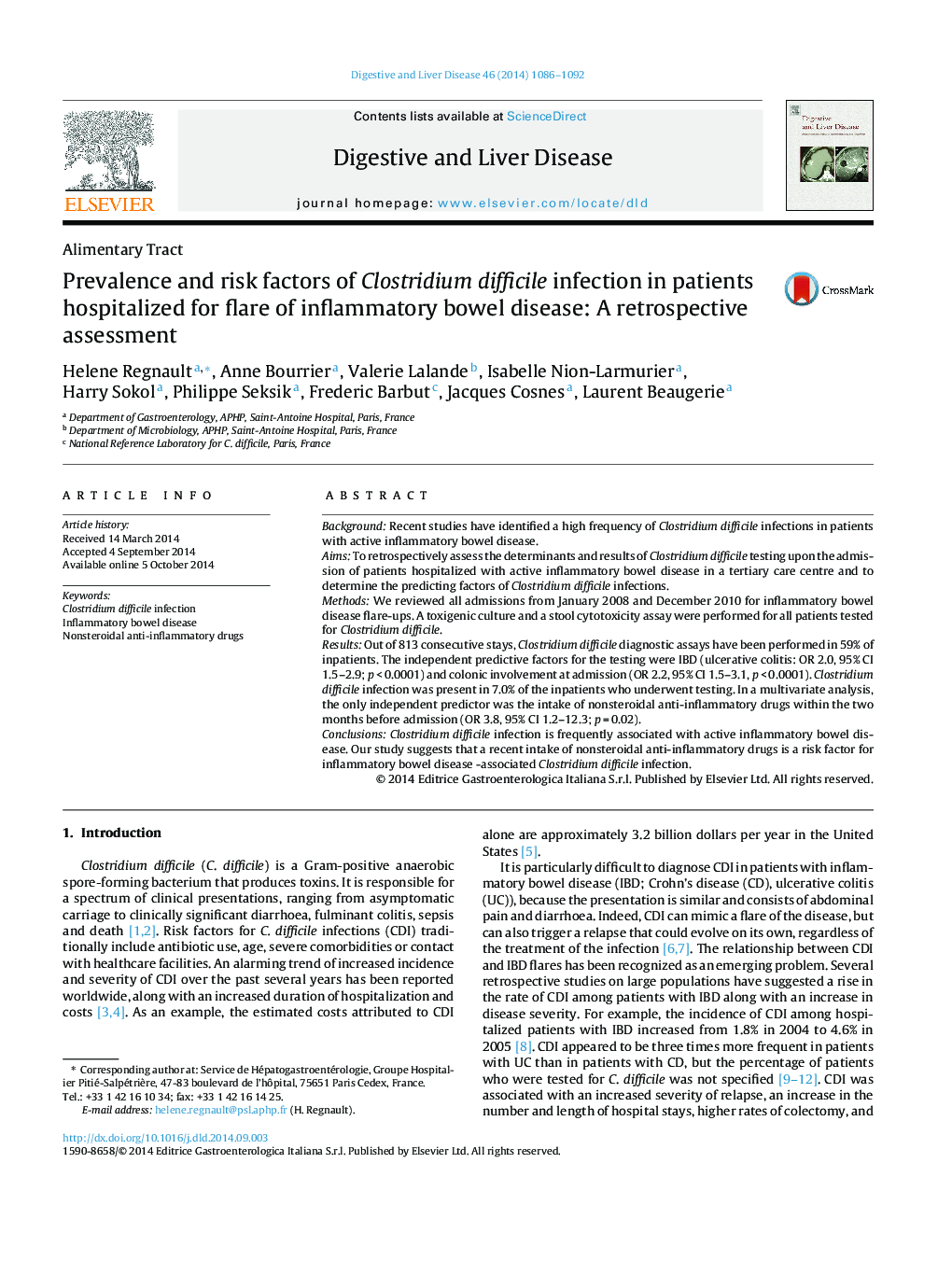| Article ID | Journal | Published Year | Pages | File Type |
|---|---|---|---|---|
| 6088608 | Digestive and Liver Disease | 2014 | 7 Pages |
BackgroundRecent studies have identified a high frequency of Clostridium difficile infections in patients with active inflammatory bowel disease.AimsTo retrospectively assess the determinants and results of Clostridium difficile testing upon the admission of patients hospitalized with active inflammatory bowel disease in a tertiary care centre and to determine the predicting factors of Clostridium difficile infections.MethodsWe reviewed all admissions from January 2008 and December 2010 for inflammatory bowel disease flare-ups. A toxigenic culture and a stool cytotoxicity assay were performed for all patients tested for Clostridium difficile.ResultsOut of 813 consecutive stays, Clostridium difficile diagnostic assays have been performed in 59% of inpatients. The independent predictive factors for the testing were IBD (ulcerative colitis: OR 2.0, 95% CI 1.5-2.9; p < 0.0001) and colonic involvement at admission (OR 2.2, 95% CI 1.5-3.1, p < 0.0001). Clostridium difficile infection was present in 7.0% of the inpatients who underwent testing. In a multivariate analysis, the only independent predictor was the intake of nonsteroidal anti-inflammatory drugs within the two months before admission (OR 3.8, 95% CI 1.2-12.3; p = 0.02).ConclusionsClostridium difficile infection is frequently associated with active inflammatory bowel disease. Our study suggests that a recent intake of nonsteroidal anti-inflammatory drugs is a risk factor for inflammatory bowel disease -associated Clostridium difficile infection.
